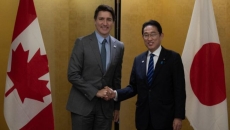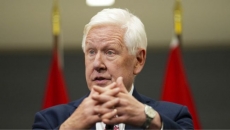In the dynamic landscape of international education, the repercussions of government policies on work hours for international students are both intricate and far-reaching. A recent 2023 pilot program in Canada had temporarily lifted the 20-hour per week cap on off-campus work for international students. This decision was motivated by the challenges faced by employers in retaining workers and addressing labor shortages. The announcement followed years of advocacy by international students urging the government to eliminate the work cap. However, concerns have emerged regarding the reinstatement of the work hour cap for 2024 and beyond, and its potential impact on students' financial stability and overall well-being.
The Immigration and Refugee Protection Regulation stipulates that international students holding a study permit without a work permit are limited to working a maximum of 20 hours per week off-campus during the academic session, while they are permitted to work full-time during breaks between sessions. On-campus work has no hourly restrictions. Violation of this work cap, as outlined by the Government of Canada, may result in severe consequences, including the loss of student status, denial of approval for future study or work permits, or even deportation.
From the office of the Honourable Selina Robinson, the Ministry of Post-Secondary Education and Future Skills underscores the temporary nature of the policy change, emphasizing, "That has always been a temporary policy, introduced during the pandemic." The Ministry contends that the primary purpose of international students in Canada is to obtain a post-secondary education, with work being a secondary consideration. Expecting international students to adhere to the conditions of their study permit, the Ministry does understand that being abroad to pursue their post-secondary education can be a challenging time and encourages exploration of scholarships and bursaries to alleviate financial pressures.
Preparing for the cost of living in British Columbia is deemed crucial by the Ministry, with part-time work serving as a means for students to support themselves without compromising their education. The Ministry expresses commitment to ensuring international students receive a quality education, hinting at future steps to protect and improve educational standards, “While we understand the financial pressures being faced by international students, we expect international students to abide by the conditions of their study permit. It’s important for international students to be prepared for the cost of living in BC, and to be able to support themselves throughout their time here on part-time work so they can focus on their education and reduce their potential vulnerabilities.”
Shifting to a local perspective, Vanshika Sharma, a full-time Copywriter & Talk Show Producer, is familiar with the challenges faced by international students, and views the 20-hour limit as a positive step. She argues, "This 20-hour limit is a great step in reiterating that education should be the top priority for the students here." Sharma expresses concerns about students getting potentially misdirected in pursuit of earning extra income and emphasizes the importance of redirecting their focus to academic pursuits. She elaborates, “To my surprise, I have met quite a few international students who unknowingly have accepted to stay in their ‘survival’ jobs, even if it doesn't match their career goals.” As such, a point of view regarding the 20-hour limit not only entails an increased focus on education, but also may serve as a reminder for international students to possibly align their part-time work with their long-term career aspirations, fostering a more purposeful and strategic approach to their time in a new academic and cultural environment.
In contrast, Aman Budhiraja, an international student, provides a firsthand account of the challenges posed by the 20-hour limit. He reflects, "The 20-hour limit is too less!" Budhiraja arrived in Canada in April 2023, and during the initial period, he could only work 20 hours per week. He highlights the financial strain, stating that working part-time barely covered rent and groceries. Budhiraja also raises concerns about the potential impact on the local community, sharing, "We hear a lot of stories where international students are not getting jobs for months."
Regarding concerns about living expenses and contributions to the local workforce, Budhiraja points out that the 20-hour limit is a hurdle for many students. He mentions the high cost of living in Canada and how students may resort to cash jobs to make ends meet, “Many students have already spent a lot of money to come to Canada and many cannot ask for more money from back home, as it will add more burden to their parents.” When asked about potential support measures during the transition back to the 20-hour work limit, Budhiraja suggests that the government should enable incoming students to learn and be trained for skilled jobs. He believes that this approach would benefit both students and the community by addressing the shortage of skilled labor.
It is no secret that life for international students is already challenging, with the complexities of adjusting to a new country, culture, and academic environment. The imposition of the 20-hour work limit may add an additional layer of difficulty, as many students struggle to meet the high cost of living in Canada. Alternatively, it may allow for focus to remain on academics. While the intention behind this policy may be to create more job opportunities for local individuals, it undeniably raises concerns about the potential adverse effects on students.
Striking a delicate balance between supporting local employment and ensuring the well-being of international students is crucial. It is essential to consider the holistic impact of such policies, recognizing that the challenges faced by students are not isolated but interconnected with broader economic and social dynamics. A thoughtful and comprehensive approach is necessary to navigate these complexities and foster an inclusive environment that supports both the local community and international students.
Surely, the perspectives presented highlight the complexities surrounding the federal policy on work hours for international students in Canada. While the government emphasizes the temporary nature of the existing policy and the importance of education, local residents like Sharma see it as a positive step to refocus students on academics. On the other hand, international students like Budhiraja express concerns about financial burdens and the potential impact on job availability. Moving forward, the balance between economic considerations, educational priorities, and the well-being of international students remains a critical issue.






